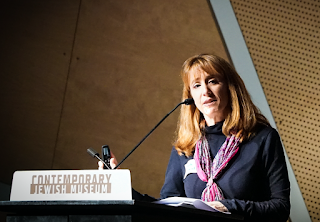 |
| Source: www.pexels.com |
According to Google AI, “Here's a breakdown of President Trump's afterschool policies, particularly his budget proposals, have had a significant impact on afterschool programs, primarily through proposed cuts and changes to federal funding streams. Here's a breakdown of the key impacts:
- Proposed Elimination of 21st Century Community Learning Centers (21st CCLC) Funding: The 21st CCLC program is the largest federal funding source specifically for afterschool and summer learning programs. President Trump's administration repeatedly proposed eliminating 21st CCLC funding, arguing the program lacked evidence of effectiveness. These proposals, if enacted, would have led to the loss of afterschool and summer programs serving millions of children and families, particularly in high-poverty areas.
- Proposed Cuts to Other Education Programs Supporting Afterschool: Trump's budget proposals also included cuts to other federal programs that indirectly support afterschool, such as Title II (Supporting Effective Instruction State Grants) and Title IV Part A (Student Support and Academic Enrichment Grants). These cuts would have further reduced resources available to states and localities for afterschool and related enrichment activities.
- Consolidation and Block Granting Proposals: Some proposals aimed to consolidate various K-12 programs, including afterschool and summer learning funding, into a single block grant. This approach raised concerns about the potential for reduced funding for afterschool specifically and a loss of focus on the unique needs of these programs.
- Impact of Overall Education Budget Cuts: President Trump's budget proposals generally sought to reduce the overall budget for the Department of Education. This could have resulted in reduced capacity for federal oversight, technical assistance, and innovation in afterschool programming.
- Bipartisan Opposition and Congressional Action: While the Trump administration proposed these cuts, afterschool programs generally enjoyed strong bipartisan support in Congress. Congress often rejected the proposed cuts and maintained or even increased funding for programs like 21st CCLC.
In Summary: President Trump's policies towards afterschool programs were largely characterized by proposed funding cuts and shifts in federal education policy. While some proposals were not enacted due to Congressional opposition, they created uncertainty and challenges for afterschool programs relying on federal support.” [i]
 |
| Source: Boost Cafe |
According to Afterschool Alliance, “The President’s proposed ‘skinny’ budget for 2026 puts funding for afterschool and summer programs via 21st Century Community Learning Centers (21st CCLC) at risk. The proposal appears to eliminate entirely or collapse 21st CCLC into a consolidated grant program, lumping 18 programs together without enough funding for them all. Please urge your representatives in Congress to sustain this funding! [See Erik Peterson, Senior Vice President of Policy, Afterschool Alliance Afterschool Snack Blog here.]
21st CCLC supports nearly 1.4 million youth in programs in every state. Remind them of the importance of local afterschool and summer learning programs.
It supports 10,000 local programs serving nearly 1.4 million across the nation. The President’s proposal appears to eliminate entirely or collapse 21st CCLC into a consolidated grant program, lumping 18 programs into a fund to be sent to states without enough money to pay for them. With $12 billion in cuts to education programs overall, the consolidation effectively eliminates 21st CCLC afterschool and summer program grants.
The need for afterschool has never been greater: for every child in a program, 4 are waiting to get in. Help make sure those doors stay open. Ask our leaders to act.
Please take a minute to make a phone call to your elected officials. A phone call helps show how much this issue matters to you! Don’t stop there:
- To help get the word out, use the tools at 3to6.co/Challenge.
- See how the proposed cut could affect your state at AfterschoolWorksforAmerica.org
Federal support is essential to help the nearly 25 million children and youth who would be in an afterschool program if one were available. Increased program costs are making it harder for afterschool providers to serve families and children. In communities nationwide the need cannot be greater for math and reading enrichment, healthy activity and nutritious snacks, and hands-on, engaging activities that help children learn and grow.
Please take two minutes to send a message to Congress in support of afterschool and summer learning programs." [ii]
END NOTE:
[i] Google AI, How Have Trump’s Policies Impact Afterschool Programs?
[ii] Afterschool Alliance, Don't Eliminate Afterschool and Summer Funding in FY 2026

















